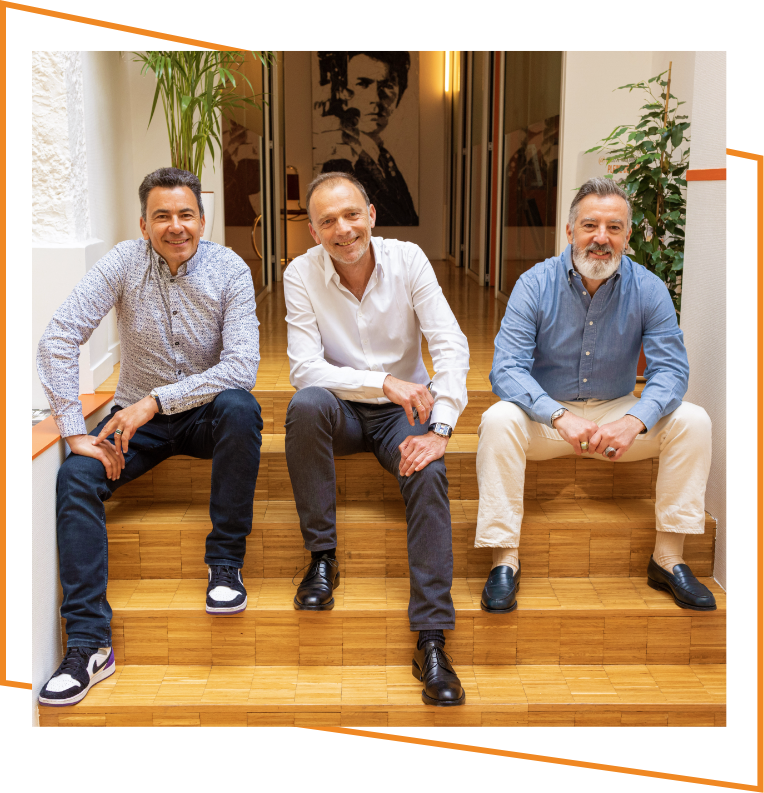@MARK was created in 2000 by three Intellectual Property Attorneys who met on the benches of the ASSAS Law University, then had three parallel careers during 10 years within reputable law firms.

@MARK listens to its clients and their satisfaction is always our goal. We intervene in the most diverse fields of activity to offer a qualitative and pragmatic vision of intellectual property law. As a truly tailor-made consultancy, @MARK ensures that it adapts to the size and scope of the clients it advises, always with a view to increasing efficiency and saving time.
Above all a source of wealth for the company, intellectual property is a key element of its assets. Each intellectual property right (trademark, model, patent, etc.) constitutes an essential asset of its business, which must be exploited in order to improve its competitiveness and conquer new markets.
This asset represents a weapon, both offensive and defensive, the wise handling of which is an essential factor of success. In this respect, strategic use of intellectual property makes it possible to generate income (transfers, licences, etc.) and to create substantial resources for the company in terms of reputation, brand image, etc.
or entrepreneurial spirit, and may ultimately constitute a significant asset in the event of the sale of the company.
A June 2015 OHIM survey of 130,000 European companies reveals that a company owning an intellectual property right has statistically more employees and that these employees have revenues that are almost 30% higher.
Considerable budgets are invested by companies in advertising their brands and image. Compared to these sums, the definition of an intellectual property strategy, which is the prerequisite and essential complement to these communication policies, requires very little investment, particularly because of the low cost of protection in France or the European Union and even in many countries via the so-called “international” route. But this heritage is fragile and must be protected.
To this end, the provisions governing intellectual property are the best guarantees against the attacks that can be made on it: counterfeiting, piracy, parasitism and unfair competition are all infringements of companies’ rights that the law can severely repress, provided that the rules are mastered.
In the hands of a specialist, intellectual property offers an arsenal of effective and dissuasive legal techniques.

Input your search keywords and press Enter.